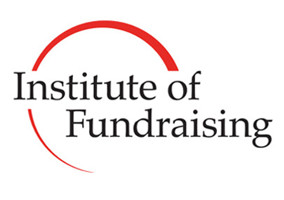New research from the IoF and YouGov highlights the wider social and personal benefits of fundraising and giving, says Daniel Fluskey.
Most of the time when we talk about excellent fundraising the focus is on the amazing work that fundraisers do that encourage people to give around £10bn every year to good causes. Of course it is – that’s why fundraisers are in their jobs – they’re passionate and committed to making the world a better place and changing lives and communities at home and around the world.
Fundraisers love their donors and supporters. It’s their generosity that gives charities the ability to make a difference. But we probably don’t talk about or recognise enough how great fundraising also has a lasting and meaningful impact on the lives of people that give. This research, the first of a series of four short reports that YouGov have produced for us, is all about the donor: the actions they take after donating and changes in their knowledge and attitude as a result.
The results may surprise you. Almost two thirds of people have taken a positive action as a result of donating. Of all of those who gave a donation, 16 per cent gave time as a volunteer. A further 22 per cent talked about a cause or recommended a charity to friends or family; a fifth looked for more information about the cause; and 17 per cent signed up for a newsletter, joined a campaign or signed a petition.
The different actions taken by different age groups gives some really interesting insights into how people engage and support charities. For example, people aged 18-39 are less likely to become a regular donor as a result of donating, but that doesn’t mean they aren’t interested in the cause or supporting the charity - younger people are significantly more likely to talk to friends or family about an issue or cause, volunteer, or like/follow a cause on social media.
Donating leaves people 'feeling more positive'
As well as inspiring and engaging people to take further actions, almost half of people who have donated to charity at any point in the past say that it’s resulted in changes in their personal behaviour or feeling more positive. The four most popular changes are:
- 24 per cent felt better or more positive as a result of donating;
- 15 per cent became more knowledgeable about social issues in the UK and overseas;
- 11 per cent became more aware of their health risks; and
- 10 per cent became more environmentally friendly.
At the IoF, our vision is excellent fundraising for a better world. Over the next month or so we’ll be releasing three more short reports from our research with YouGov ‘Insights into charity fundraising’, to look more closely at why people give and their experience of donating; charity communications and the views of donors; and who gives, how much, and how.
Today’s report, Insights into charity fundraising: changes in knowledge, attitude, and action as a result of donating is available at www.institute-of-fundraising.org.uk/insights
Daniel Fluskey is head of policy and research at the Institute of Fundraising.
Civil Society Media would like to thank the Institute of Fundraising for their support with this article.
Related articles












